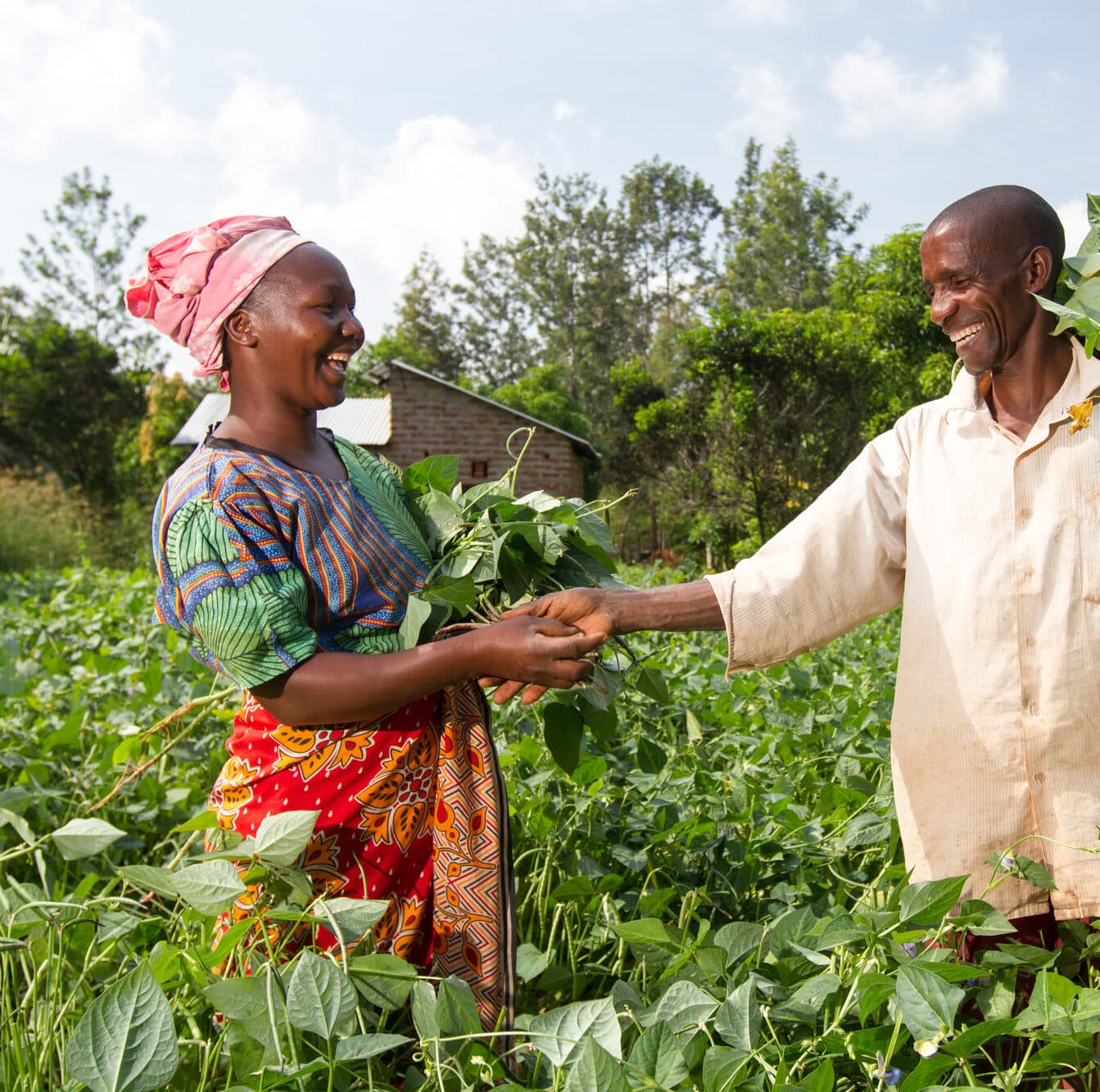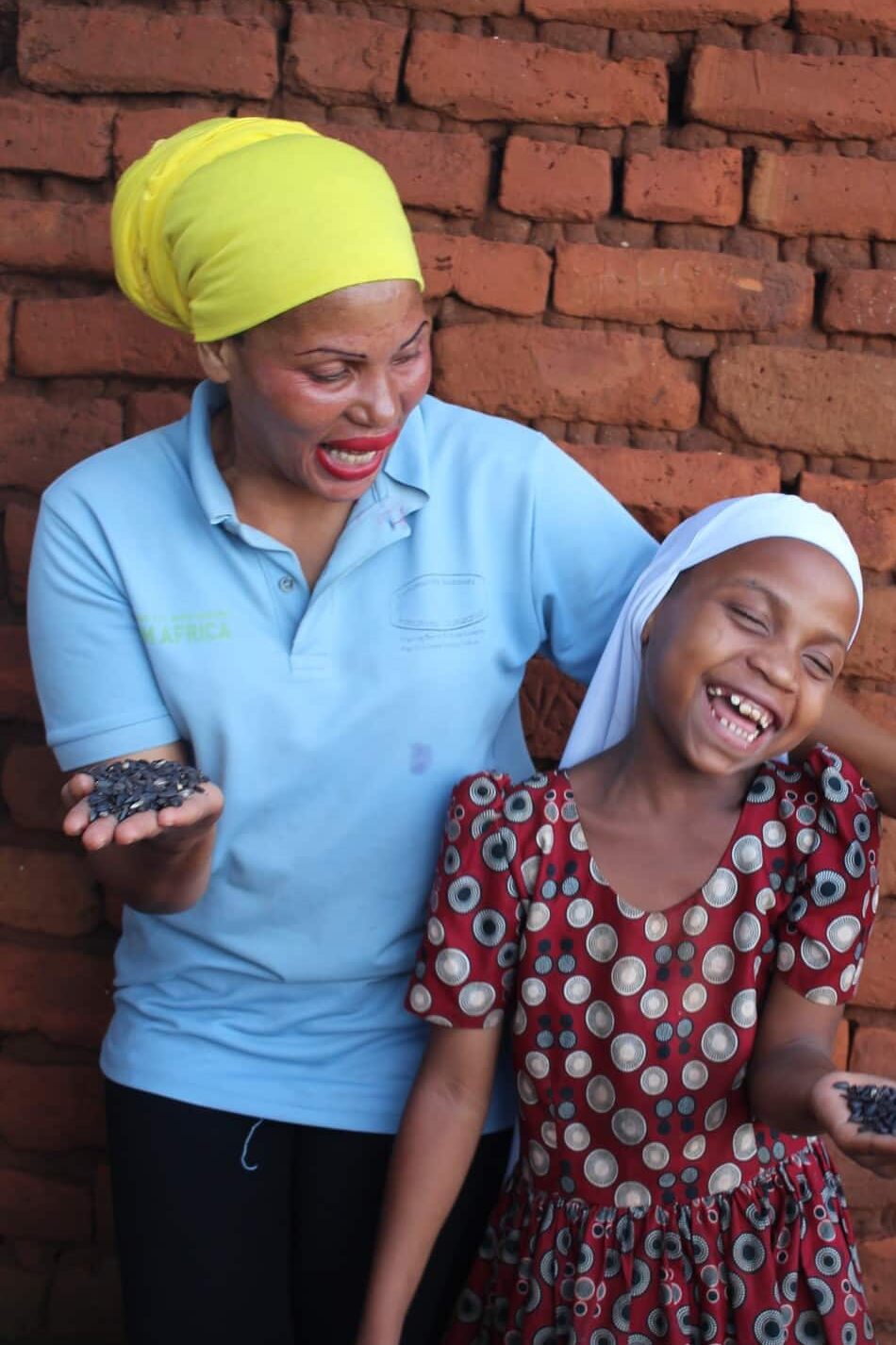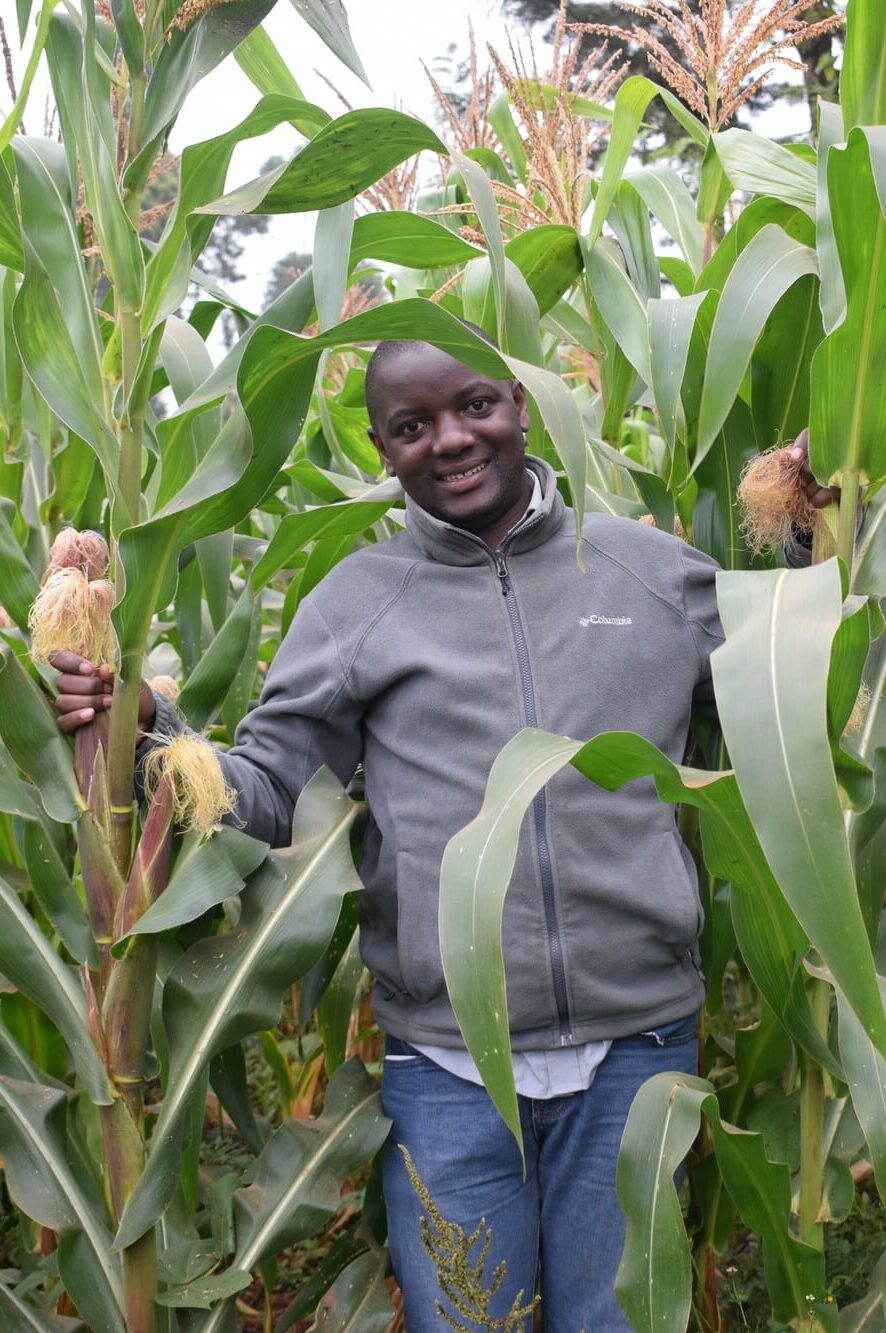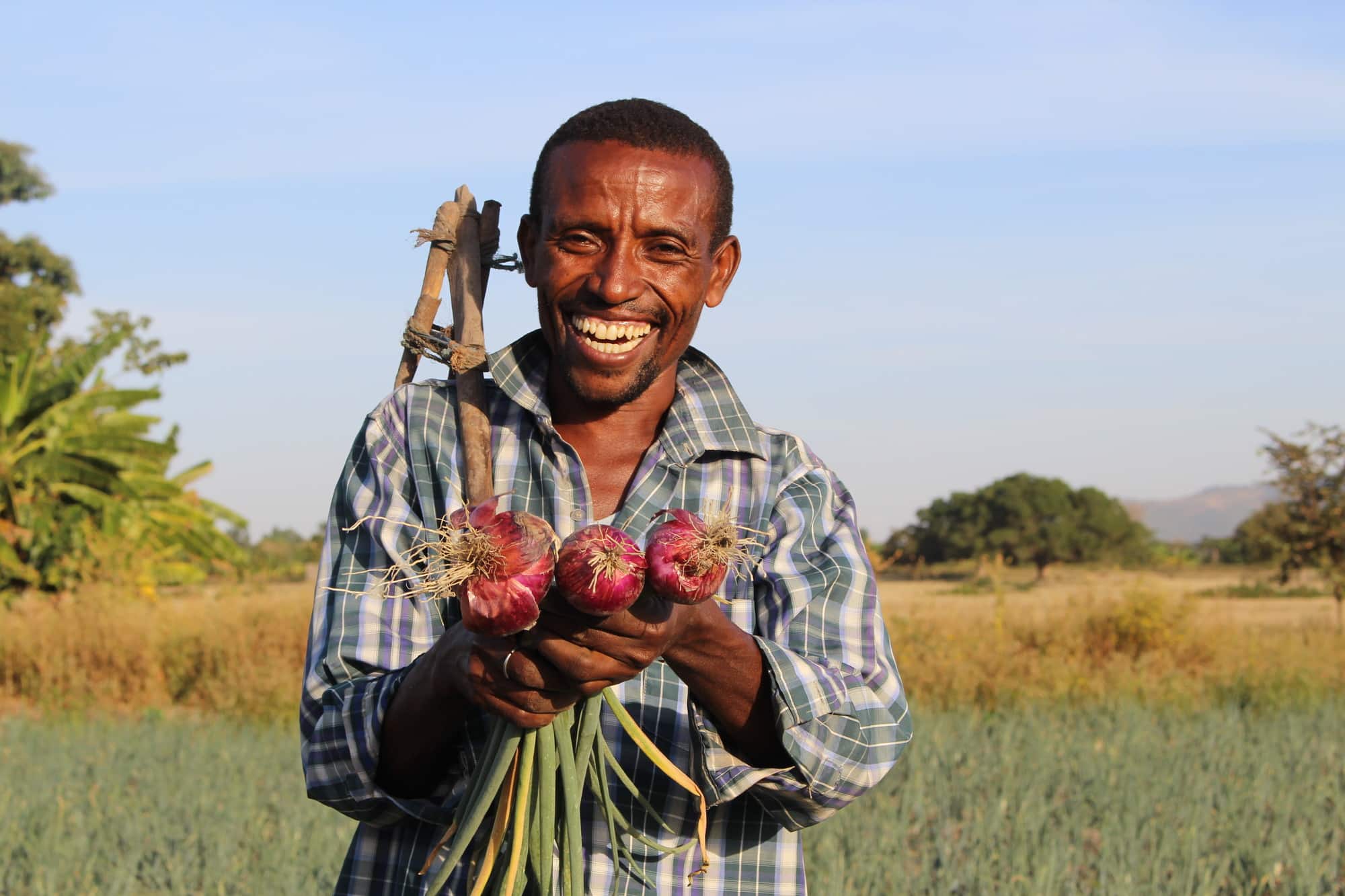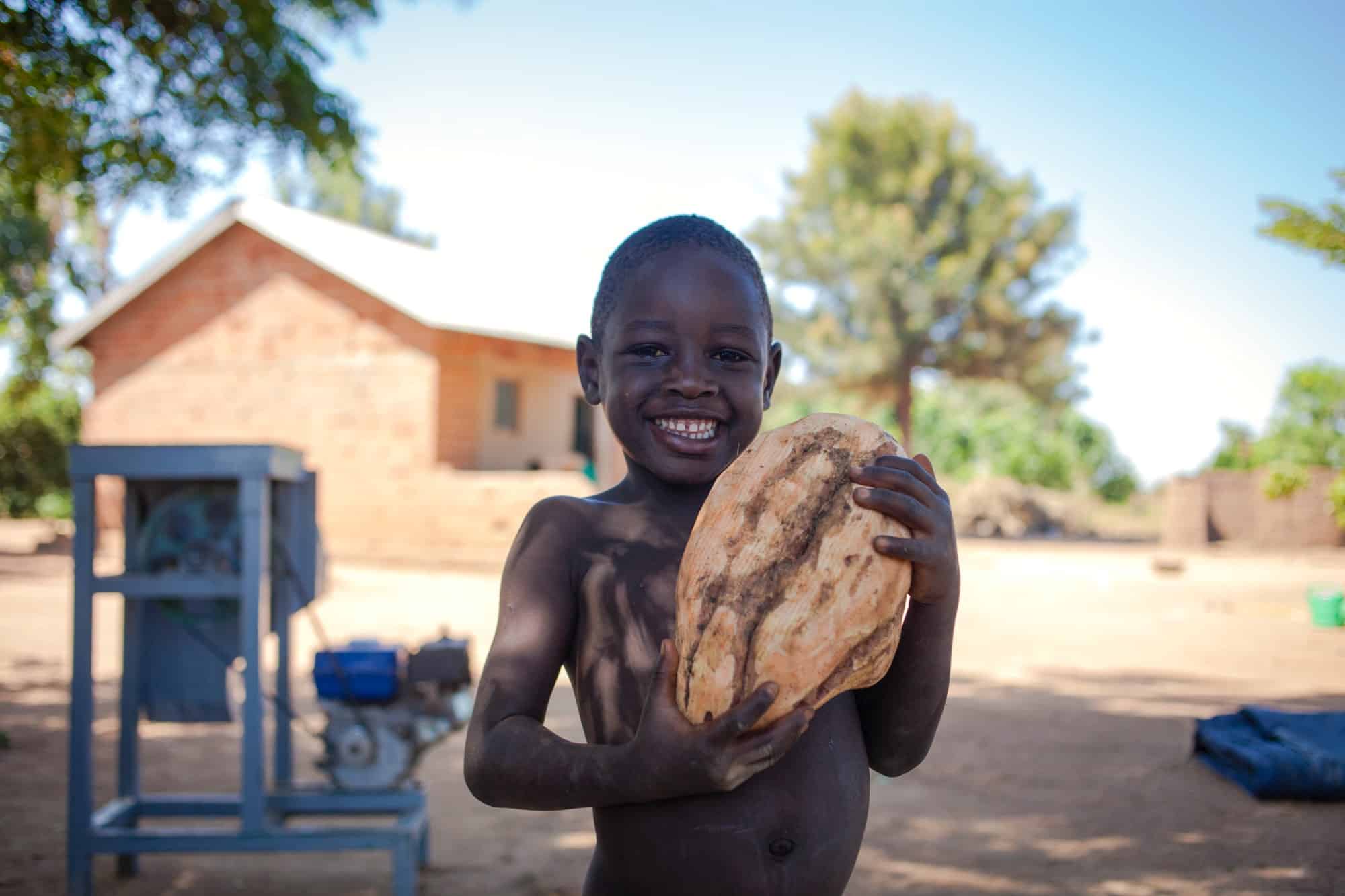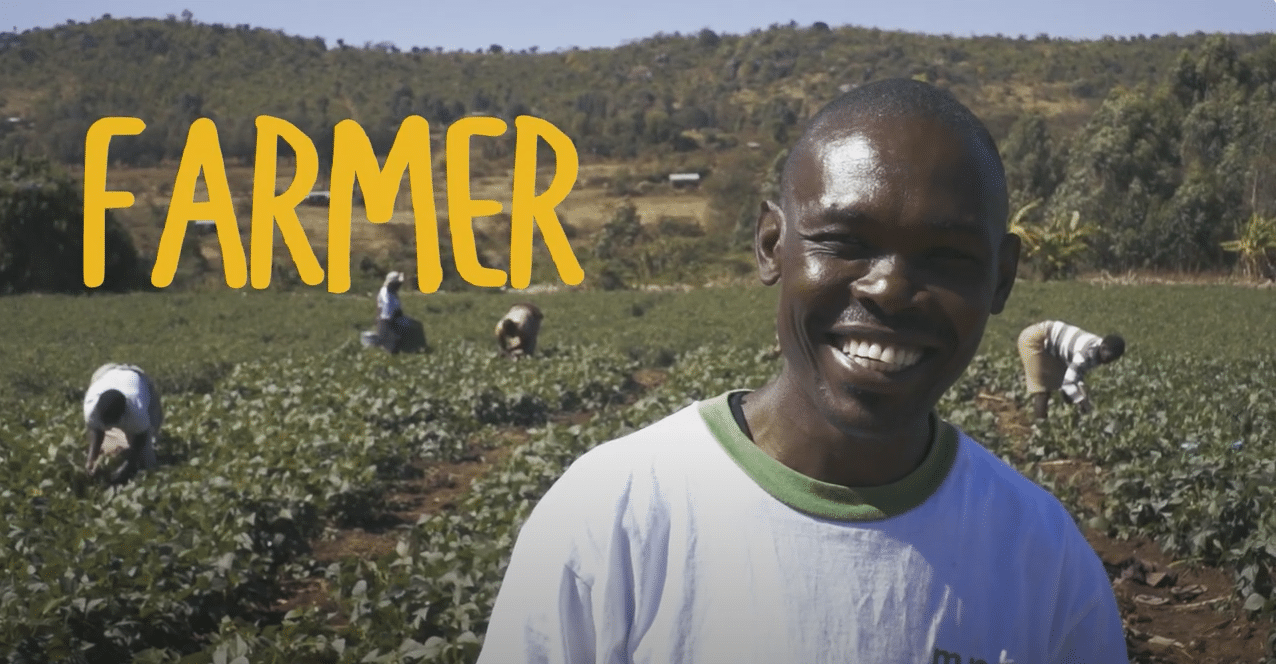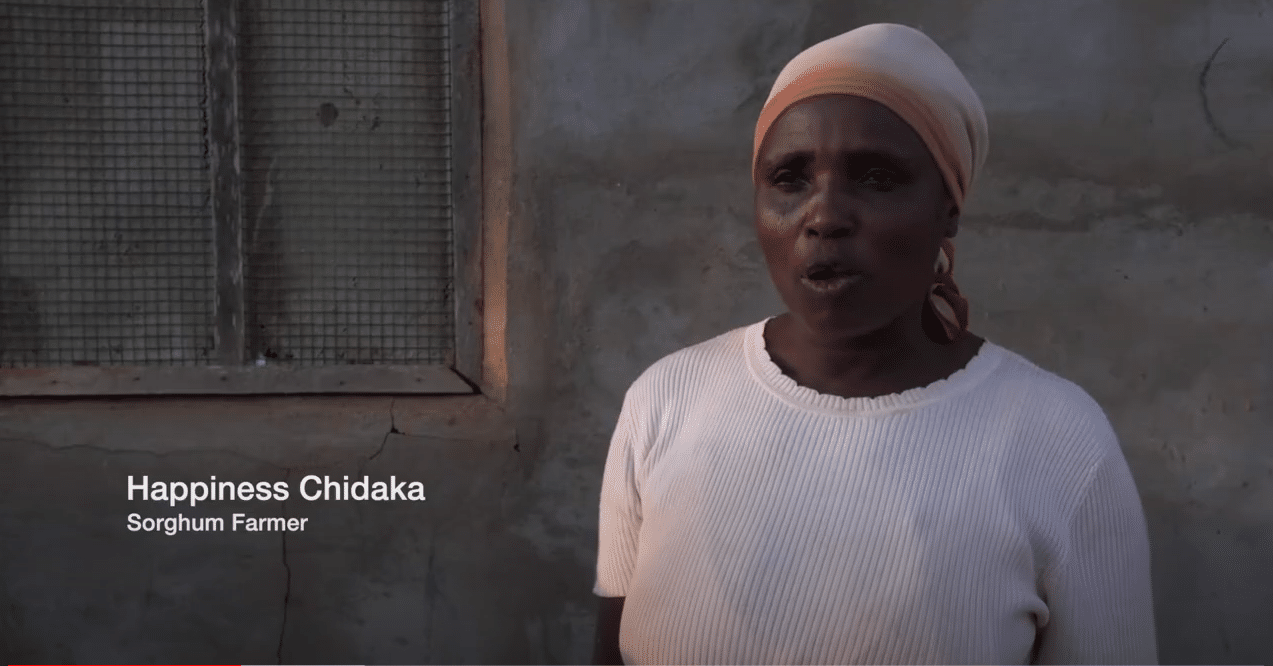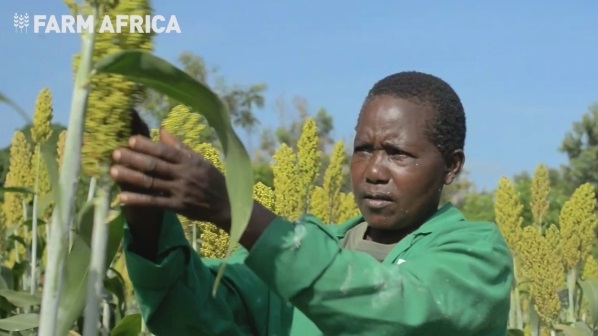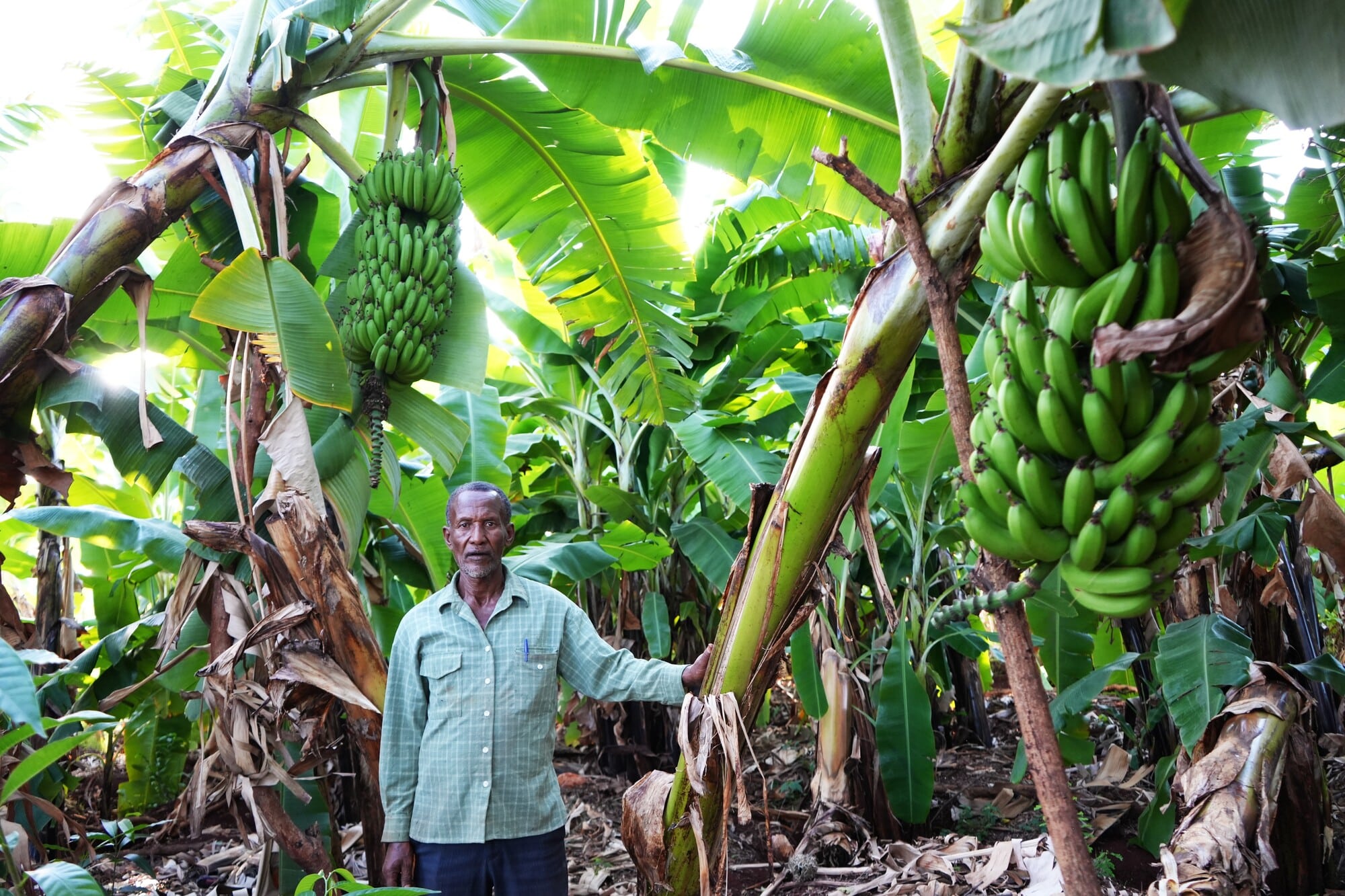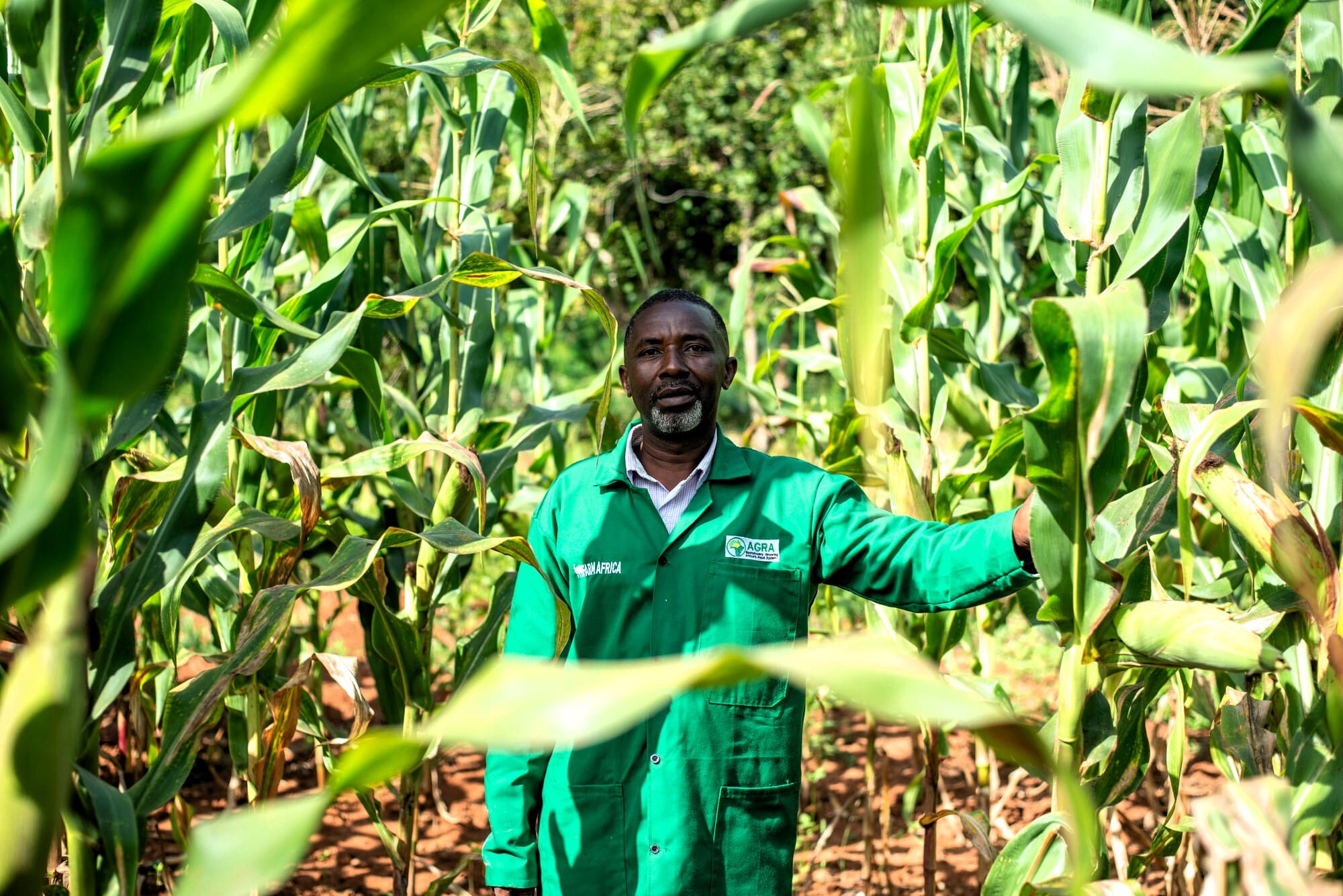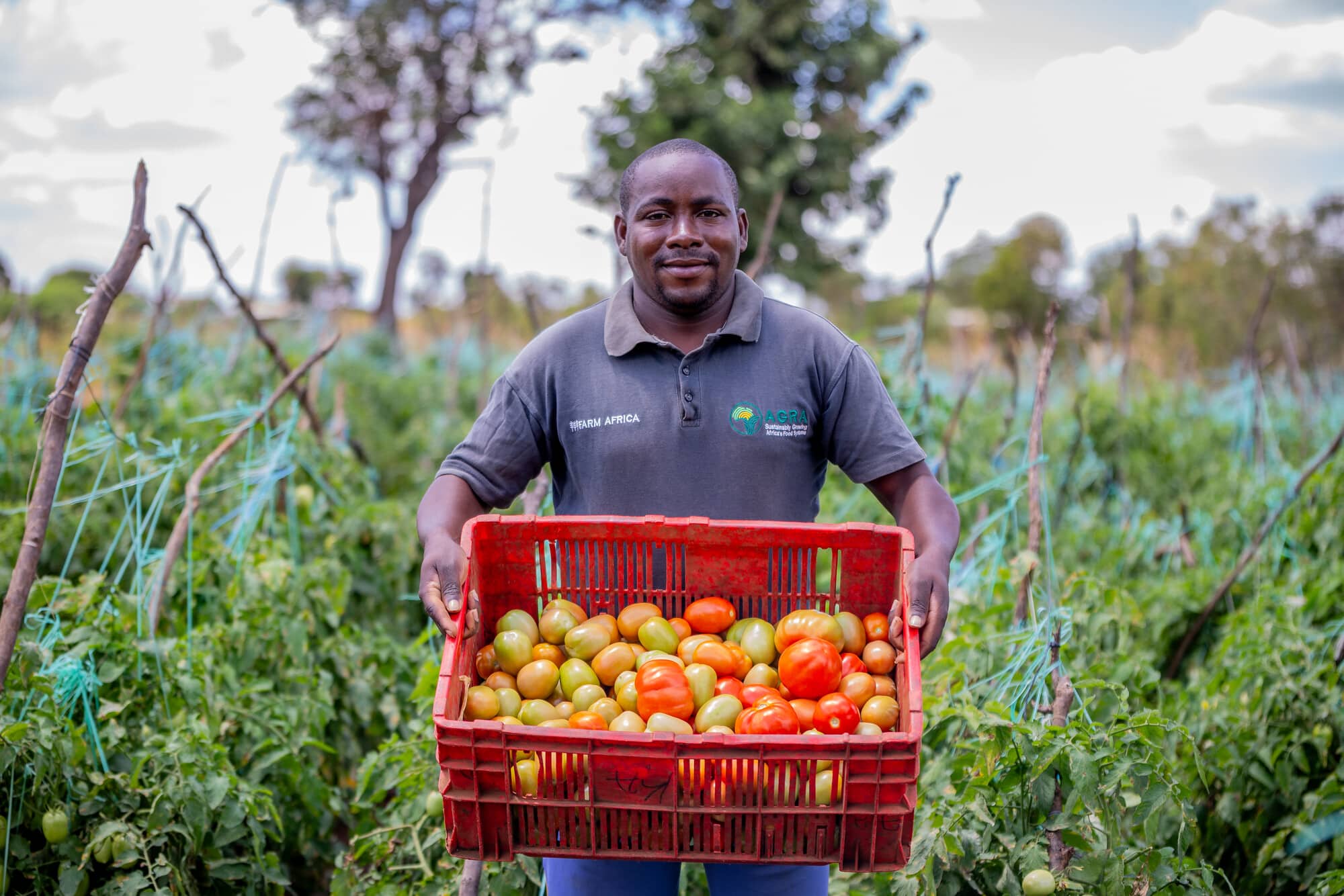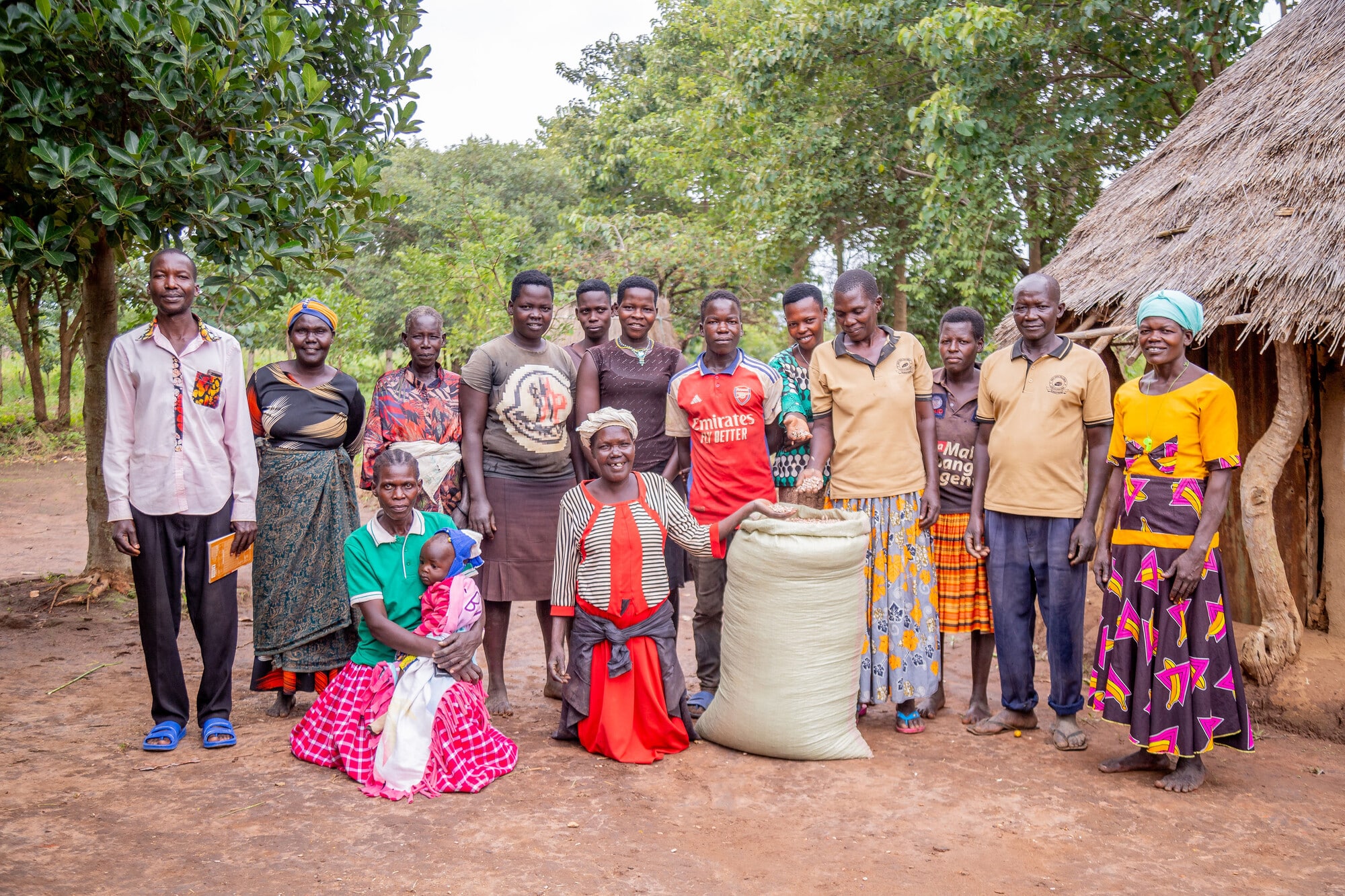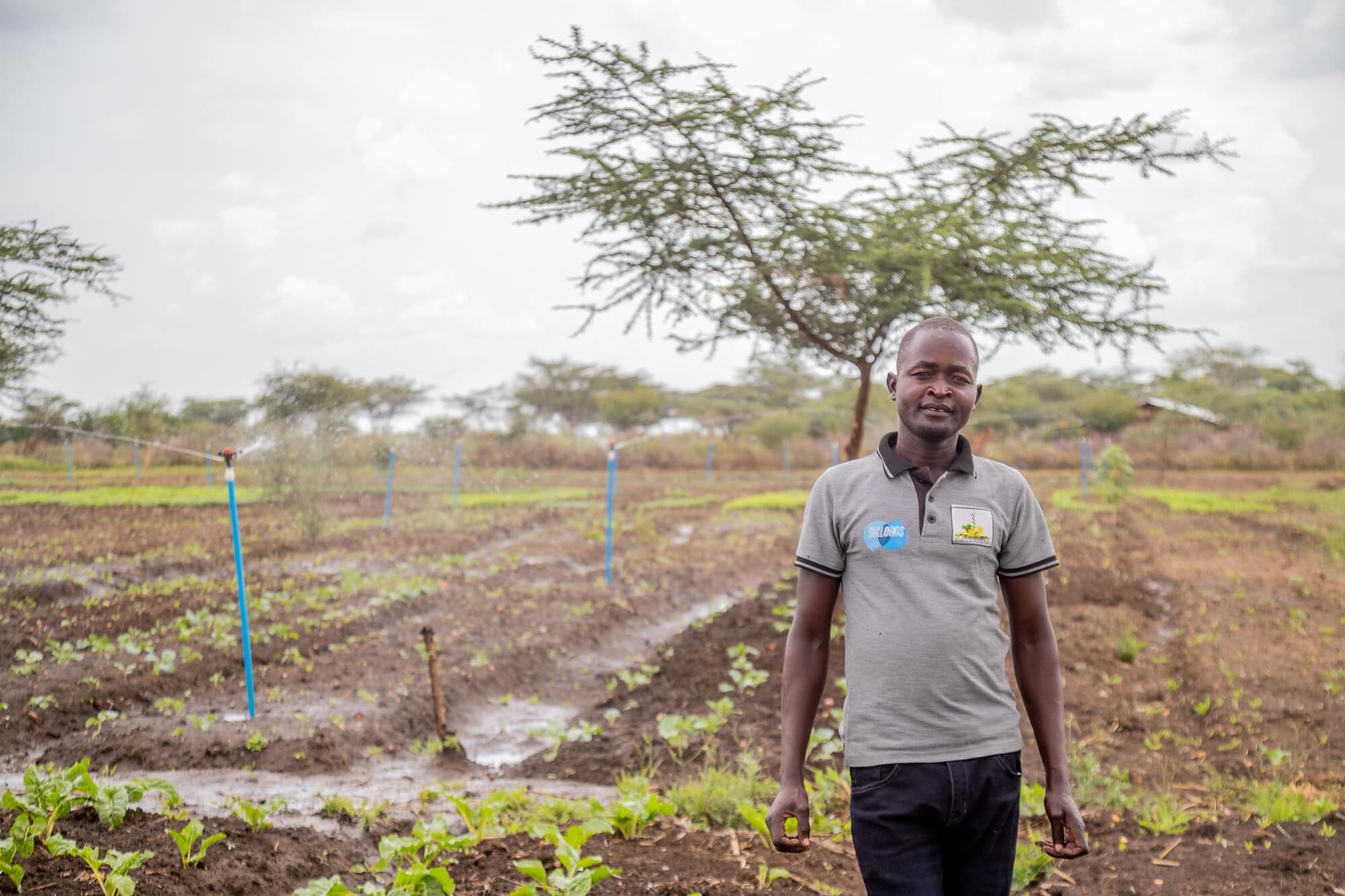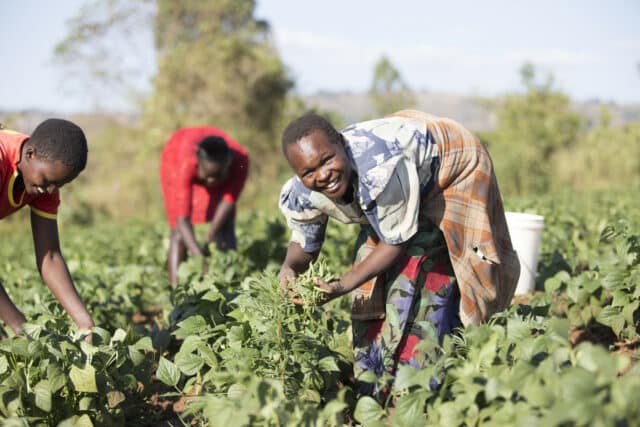Specific expertise
Climate-smart agriculture
Climate-smart agriculture has the power to build the resilience of communities in the face of climate change.
Agriculture is Africa’s biggest employer. Unfortunately, it suffers the greatest impacts of climate change variabilities, affecting farm yields where only a third to a half of their potential is attained¹, leading many rural communities into poverty.
Farm Africa brings in simple but effective technologies such as small-scale irrigation schemes, seeds for drought-tolerant crops, disease-resistant native crops and marketing skills that make such tough farming viable, profitable and sustainable.
We support smallholder farmers, farm workers and agro-pastoralists growing crops in eastern Africa to increase the quality and quantity of their produce and build their links to markets, while protecting the environment for years to come.
Farming the future
We prove that good farming, backed by strong marketing and sustainably managed ecosystems, is a lasting way out of poverty.
Building on nearly 40 years’ experience of supporting farmers in eastern Africa, Farm Africa supports smallholder farmers to:
- Use market information to produce food that is in high demand.
- Use climate information to adapt farming practices to climate extremes such as drought and flooding.
- Access high-quality agricultural inputs, such as improved seeds, fertiliser, and irrigation, and gain access to the finance needed to buy them.
- Learn by doing. We help farmers groups learn about good agricultural practices on demonstration plots managed by other farmers and Farmer Training Centres.
- Boost productivity. The use of high-quality agricultural inputs and good agricultural practices means farmers can increase the volumes of crop they produce per hectare.
- Reduce food loss. Storing produce in waterproof sacks in moisture-controlled warehouses, preserving produce like chillies using solar dryers and building links to markets are some of the ways farmers can reduce post-harvest losses, meaning higher incomes and a lower carbon footprint.
- Improve marketing. Aggregating crops and selling them in bulk, or adding value to produce by processing and packaging it, such as producing oil from sunflower seeds are ways that farmers can attract buyers and secure higher prices.
With training from our staff in eastern Africa, farmers are doubling and tripling their harvests as they adopt better seeds, methods and soil improvers.
Regenerative agriculture
We focus on regenerative agriculture approaches that help farmers to manage their resources in ways which protect ecosystems and reduce agriculture’s contribution to climate change.
These practices such as mulching, intercropping, organic composting and diverse cover crops build soil fertility and organic carbon stocks.
Farm Africa promotes diversification and trains farmers in sustainable practices to promote more intensive farming that will increase yields and incomes without damaging local ecosystems.
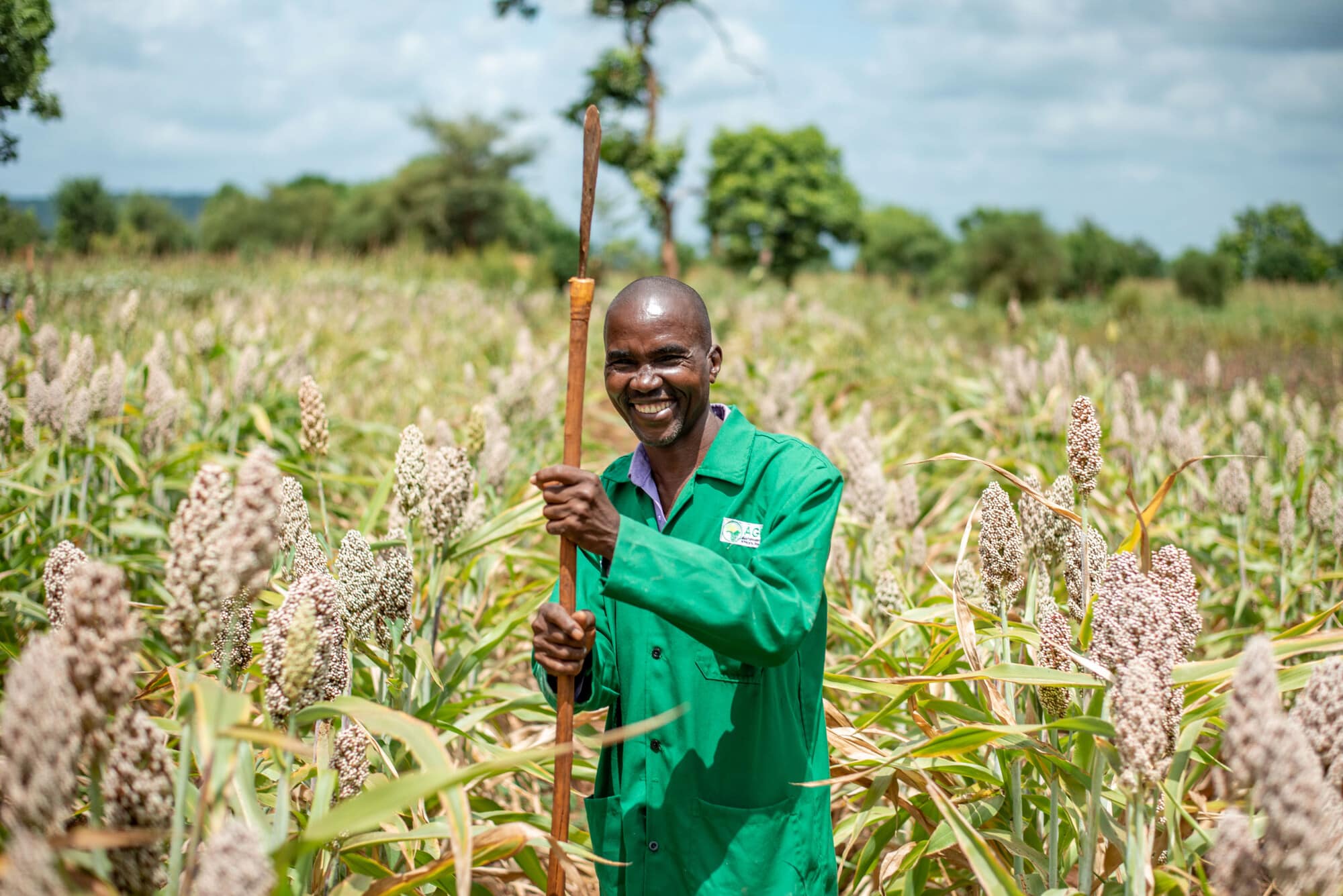
Drought-tolerant seeds
Many smallholder farmers in eastern Africa rely on seeds that they have collected from their own crops, but these recycled seeds are often poor quality and have very little chance of growing into a healthy harvest, particularly if the conditions are dry.
With the effects of climate change worsening, these crops are more likely to fail and farmers will struggle.
But high-quality seeds have the power to revolutionise harvests. They help to boost crop yields, are tolerant to droughts and resilient to pests and diseases.
Farm Africa trains farmers in producing, processing and selling high-quality, drought-tolerant seeds to give farmers and their families the best chance of a healthy harvest, even in the driest conditions.
Agroforestry
With improved productivity and soil health, there is less need to cut down trees or use more land for agriculture. This reduces the pressure on forests, rangelands and drylands and makes farming viable for people with small plots of land.
Agroforestry is a component of many of our projects. We encourage farmers to grow fruit, fodder and shade trees on their farms. Tree roots hold water in the soil and hold soil together, which leads to less erosion and improved soil health and fertility. Trees also provide shade for other crops and can stimulate diversity in plants and animals.
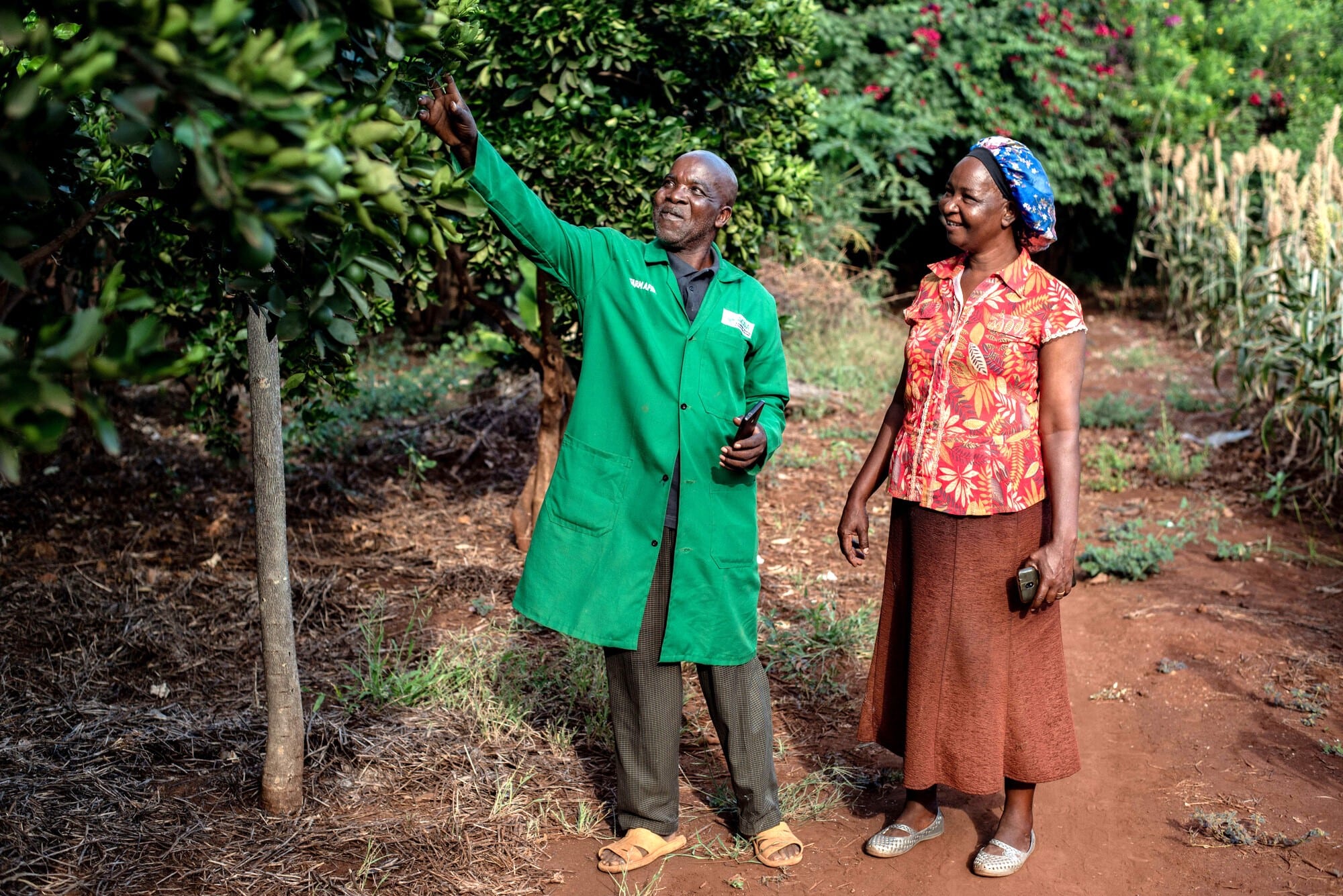
Vermiculture
This low-cost, low-tech approach uses worms to rapidly convert green waste and animal manure into rich, organic compost that can supercharge crop production.
As the price for fertiliser continues to climb, vermiculture is an affordable option for smallholder farmers across eastern Africa.
¹https://www.mckinsey.com/industries/agriculture/our-insights/winning-in-africas-agricultural-market#
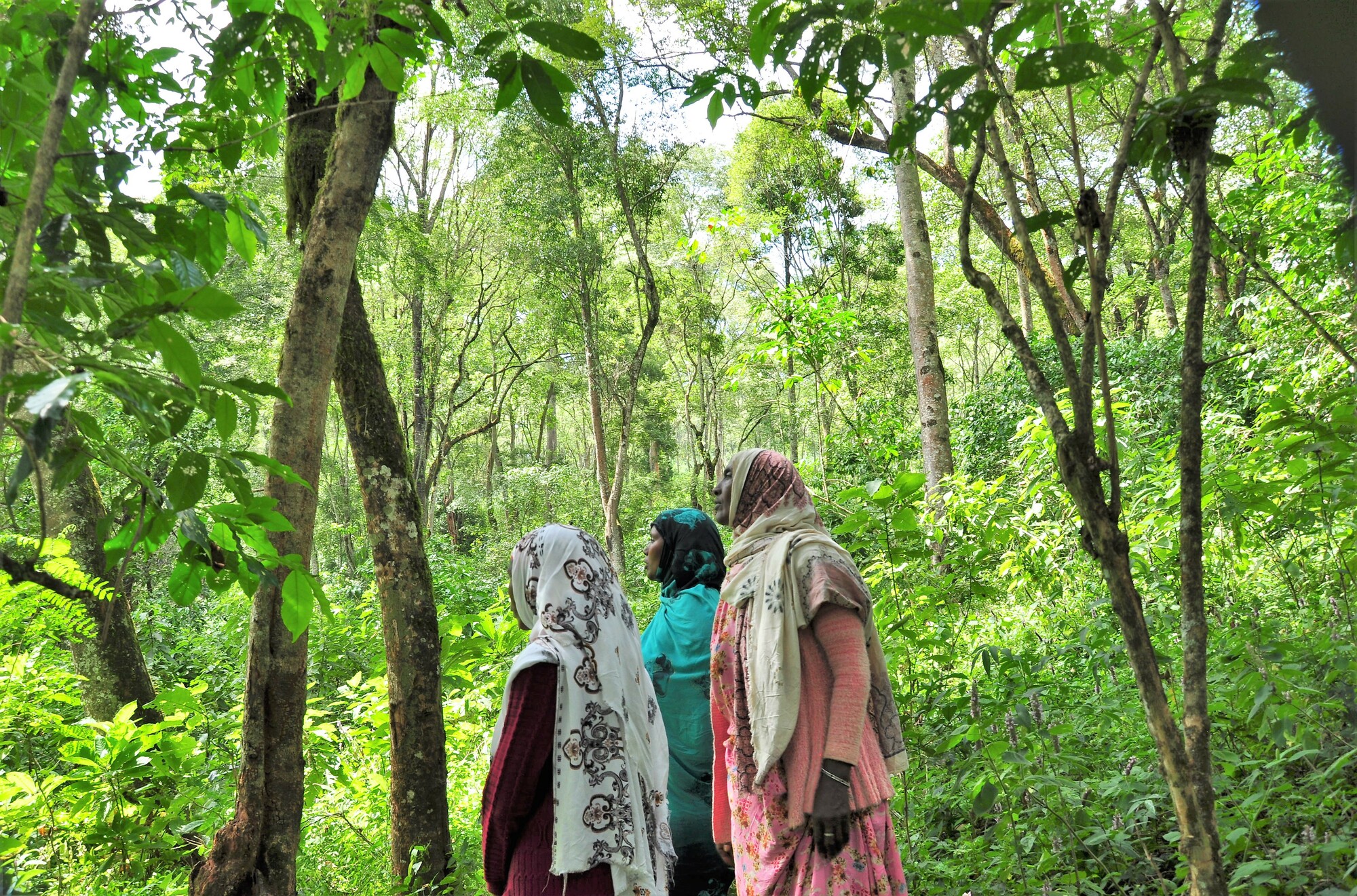
Agriculture is vulnerable to climate change, but also a major source of greenhouse gas (GHG) emissions. Yet agriculture can become part of the mitigation solution, as sequestering carbon removes CO2 from the atmosphere and reduces GHG emissions.
Watch
Resources
Country
Kenya
Key focus areas
Boost productivity
Increase incomes
Strengthen food systems
The Village-Based Advisor (VBA) model
Agricultural extension services to farmers are vital for enhancing productivity and production of agricultural produce in Kenya. However, the ratio of agricultural extension workers to farmers stands at 1:5,000 compared to the recommended ratio of 1:400. This paper outlines how Farm Africa and AGRA are helping to plug this gap in Embu and Tharaka Nithi counties by creating a network of Village-based Advisors (VBAs) made up of well-informed, passionate farmers who receive specialised training to provide technical extension services, inputs and market linkages to other services to other farmers.
Download (4.21mb)
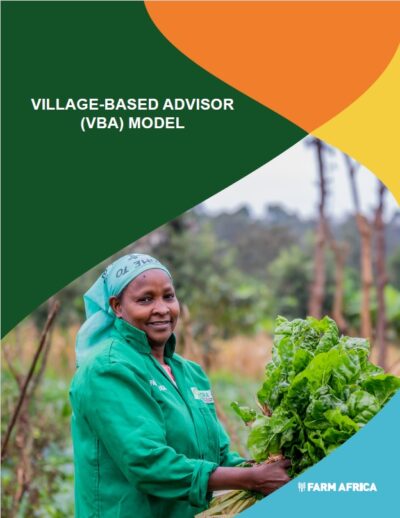
Country
Kenya
Key focus areas
Boost productivity
Increase incomes
Strengthen food systems
Country
DR Congo
Key focus areas
Act on climate change
Boost productivity
Protect ecosystems
Farm Africa’s approach to climate-smart agriculture
A summary of Farm Africa’s approach to building the resilience of smallholder farmers to climate shocks and trends and minimising their contribution to greenhouse gas emissions.
Download (979.37kb)
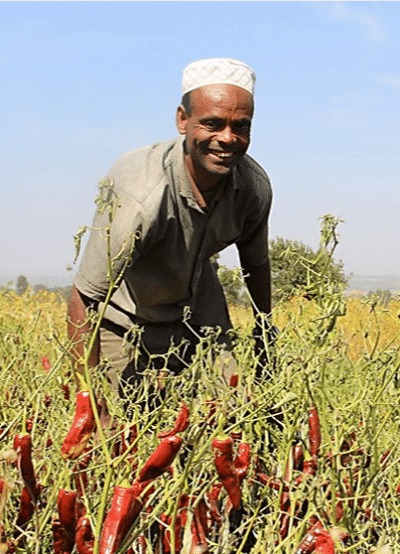
Country
DR Congo
Key focus areas
Act on climate change
Boost productivity
Protect ecosystems
Country
DR Congo
Key focus areas
Boost productivity
Farm Africa’s approach to technology
A summary of Farm Africa’s approach to developing, adapting and promoting technological innovations that enhance smallholder farmers’ land and labour productivity.
Download (884.12kb)
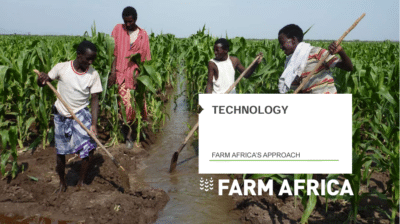
Country
DR Congo
Key focus areas
Boost productivity
Country
DR Congo
Key focus areas
Protect ecosystems
Farm Africa’s approach to land, water and environment
A summary of Farm Africa’s approach to increasing the sustainability of smallholder and agribusiness production, with a focus on conservation of essential biodiversity, woodlots and watersheds.
Download (931.5kb)

Country
DR Congo
Key focus areas
Protect ecosystems
Country
DR Congo
Key focus areas
Boost productivity
Increase food security and nutrition
Protect ecosystems
An overview of Farm Africa’s approach to agriculture
Reducing poverty in rural Africa depends on making agriculture work better. Farm Africa’s approach to improving agricultural production focuses on helping farmers harness the power of technological advances, pioneering the use of climate-smart agriculture and better managing the natural resources farmers rely upon.
Download (803.84kb)

Country
DR Congo
Key focus areas
Boost productivity
Increase food security and nutrition
Protect ecosystems
Country
Ethiopia
Key focus areas
Boost productivity
Connect farmers to markets
Quality Declared Seed
A report on various seed systems in eastern Africa and how a Quality Declared Seed (QDS) system can help farmers increase their yields and productivity, with case studies from Ethiopia, Tanzania and Uganda.
Download (2.59mb)
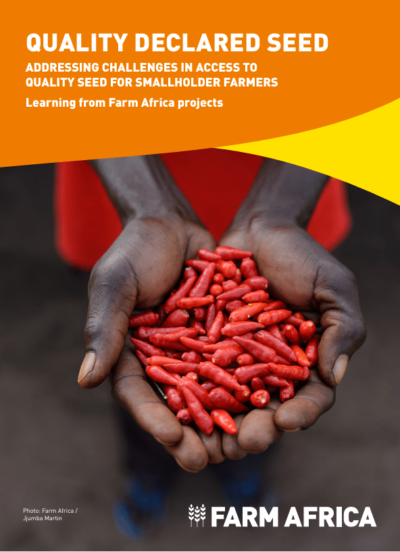
Country
Ethiopia
Key focus areas
Boost productivity
Connect farmers to markets
Country
Kenya
Key focus areas
Act on climate change
Boost productivity
Increase food security and nutrition
Regenerative agriculture factsheet
A comprehensive overview of Farm Africa’s Regenerative Agriculture project in Embu and Tharaka-Nithi counties in Kenya, funded by the IKEA Foundation through AGRA.
Download (2.84mb)
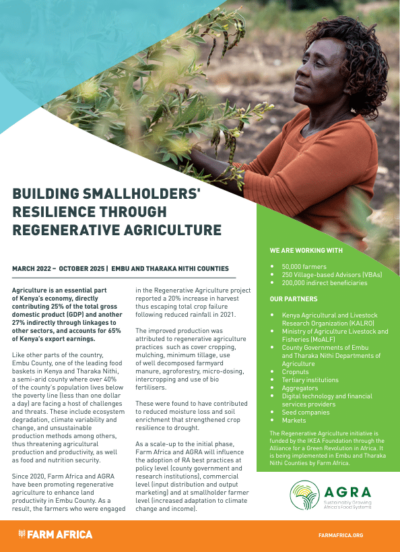
Country
Kenya
Key focus areas
Act on climate change
Boost productivity
Increase food security and nutrition
Country
Kenya
Key focus areas
Boost productivity
Boost youth employment
Connect farmers to markets
Growing Futures factsheet
A comprehensive and concise overview of Farm Africa’s Growing Futures project in western Kenya. Growing Futures supports young farmers in western Kenya to set up profitable enterprises growing and selling high-demand vegetables.
Download (1.09mb)
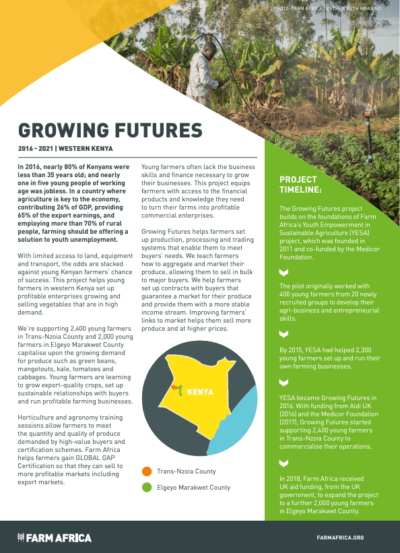
Country
Kenya
Key focus areas
Boost productivity
Boost youth employment
Connect farmers to markets
Country
Ethiopia
Key focus areas
Connect farmers to markets
Increase food security and nutrition
Strengthen food systems
Strengthening agricultural market systems
A summary report of Farm Africa’s market systems project in Amhara, Ethiopia, which aimed to improve food security and livelihoods of small-scale farmers by making market systems more inclusive. This project was part of the Growth for the future project, funded by Sida.
Download (1.21mb)
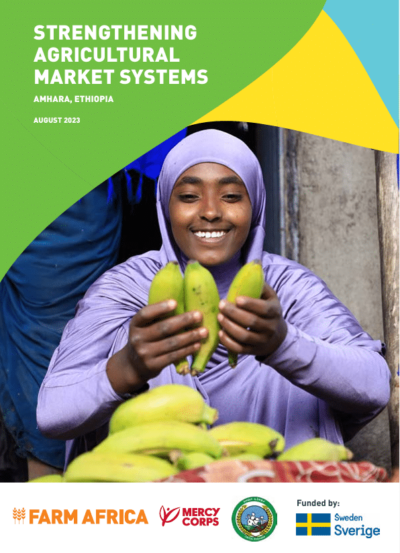
Country
Ethiopia
Key focus areas
Connect farmers to markets
Increase food security and nutrition
Strengthen food systems
Country
Ethiopia
Key focus areas
Protect ecosystems
Landscape management in the Central Rift Valley
This booklet features 12 stories from the Central Rift Valley Landscape Management project, which ran from 2019 to 2022. Funded by Sida, the project was delivered by a consortium of organisations including Farm Africa (lead), SOS Sahel Ethiopia, International Water Management Institute (IWMI), Population, Health, and Environment Ethiopia Consortium (PHE EC), and Sustainable Environment and Development Action (SEDA).
Download (4.68mb)
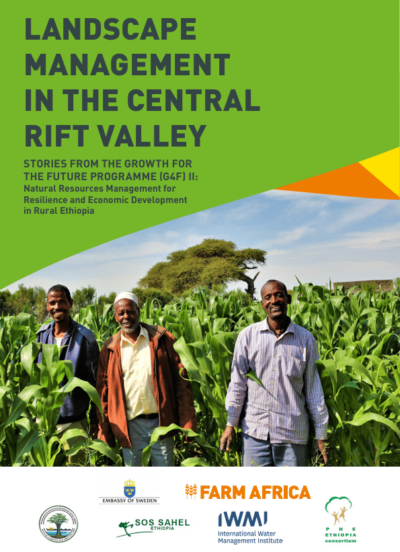
Country
Ethiopia
Key focus areas
Protect ecosystems
Country
Ethiopia
Key focus areas
Act on climate change
Increase incomes
Protect ecosystems
Climate-smart agriculture factsheet
An overview of Farm Africa’s climate-smart agriculture project in Ethiopia.
Download (350.67kb)
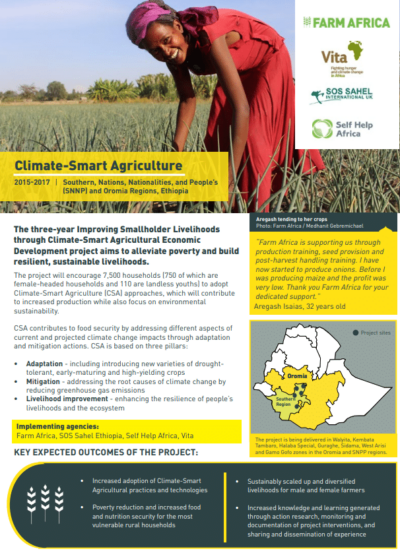
Country
Ethiopia
Key focus areas
Act on climate change
Increase incomes
Protect ecosystems
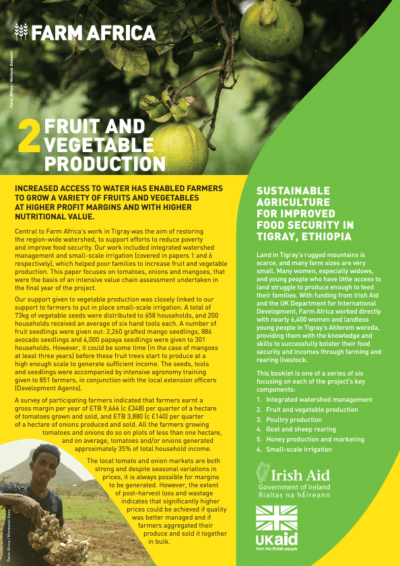
Sustainable agriculture for improved food security in Tigray, Ethiopia. Part two: Fruit and vegetable production.
More info
Country
Ethiopia
Key focus areas
Boost productivity
Increase food security and nutrition
Increase incomes
Sustainable agriculture for improved food security in Tigray, Ethiopia. Part two: Fruit and vegetable production.
Increased access to water has enabled farmers to grow a variety of fruits and vegetables at higher profit margins and with higher nutritional value.
Download (1.08mb)

Country
Ethiopia
Key focus areas
Boost productivity
Increase food security and nutrition
Increase incomes
Country
Ethiopia
Key focus areas
Act on climate change
Boost productivity
Increase incomes
Small-scale irrigation
This booklet is one of a series of seven focusing on the key components of the five-year Improving Smallholder Livelihoods through Climate-Smart Agricultural Economic Development project. Funded by Irish Aid, and implemented by a consortium of SOS Sahel Ethiopia, Self Help Africa, Vita and Farm Africa, the project aimed to alleviate poverty and build resilient, sustainable livelihoods in Ethiopia’s SNNP and Oromia regions.
Download (624.5kb)
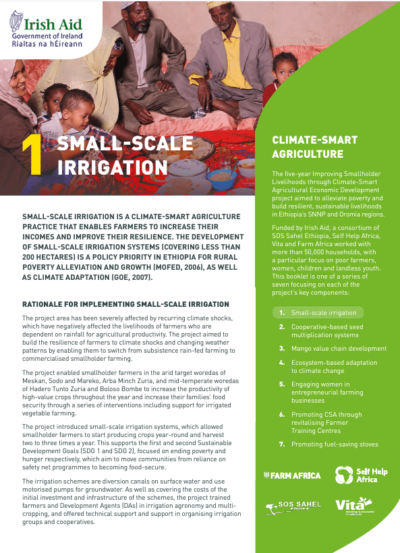
Country
Ethiopia
Key focus areas
Act on climate change
Boost productivity
Increase incomes
